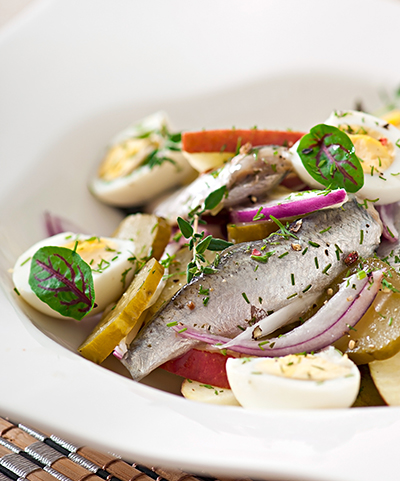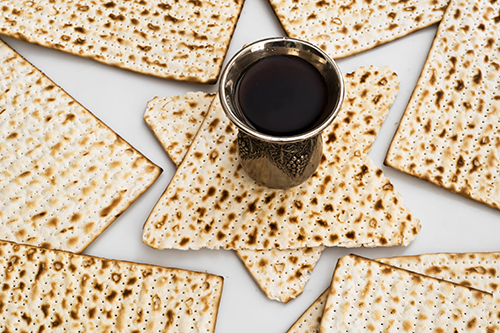How to Manage A Kosher Event
In October after hearing how Bonnie had to plan her daughter’s Jewish wedding last month incorporating two different kosher practices, I asked if she would write a piece on how to plan and manage a kosher event. Below is some of her guidance.
When you plan or manage a kosher event it can be overwhelming to those who have no knowledge of what kosher means and even to those who are Jewish and were raised in a kosher home. My experience in planning a 3,000 person event for the Council of Jewish Federations for their General Assembly was daunting.
There are many individual interpretations of what kosher means and how to adhere to kosher standards. Clear communication is essential in ensuring a successful event.
What questions must you ask (either from your client or directly from the attendees prior to your event)?
If you require kosher meals, what does kosher mean to you? Do your participants want “kosher-style?”* Are they Glatt kosher, which is the strictest interpretation of kosher? Will everyone attending need kosher meals? Do you need a kosher kitchen? Is Rabbinical supervision (meshgiach) required to certify that the kitchen is dedicated to kosher food? If just a few attendees need kosher meals, can individual meals be provided by an approved outside caterer? Will attendees eat kosher food using the plates and utensils of a non-Kosher facility? Will you need a washing station which can be used prior to meals?
10 things that you must know about kosher
- Kosher means purity ensuring fit for consumption. There are comprehensive laws concerning permitted and forbidden foods as well as food preparation, cookware including serving dishes, plates and utensils.
 There are three categories for kosher food:Meat – all meat, fowl and their byproducts (bones, soup, skin, gravy)
There are three categories for kosher food:Meat – all meat, fowl and their byproducts (bones, soup, skin, gravy)
Dairy — all foods derived from, or containing milk (milk, butter, yogurt, cheese, ice cream).
Parve — neither meat nor dairy (neutral) and can be consumed with either meat or dairy.
The Torah says: “You may not cook a young animal in the milk of its mother.” From this, it is derived that milk and meat products may not be mixed together nor be served together.
- Standards of kosher vary. The strictest people will eat only foods that have reliable Orthodox kosher certification, eating only Glatt-kosher certified meats and specially certified dairy products. They will not eat cooked food unless it has reliable Orthodox certification. Others are more lenient, accepting less reliable certifications without question or items that have no certification but do not contain any identifiably non-kosher ingredients.
- According to the laws of the Torah, the only types of meat that may be eaten are cattle and game that have “cloven hooves” and “chew the cud.” Kosher species must be slaughtered by a ritual slaughterer. Only birds that are traditionally considered kosher, such as the goose, duck, chicken, and turkey, may be eaten.
 Only fish with fins and scales, such as tuna or salmon, may be eaten. Shellfish such as shrimps, crabs, mussels, and lobsters are forbidden.
Only fish with fins and scales, such as tuna or salmon, may be eaten. Shellfish such as shrimps, crabs, mussels, and lobsters are forbidden.- Dairy products may not contain non-kosher additives. Many types of cheese are made with animal fats and are therefore not kosher.
- Beverages manufactured from grape or grape-based derivatives may only be drunk if the grapes come from a kosher winery, prepared under strict Rabbinical Supervision.
- All products that grow in the soil or on plants, bushes, or trees are kosher. Insects and animals that have many legs or very short legs are not kosher. Produce must be scrupulously cleaned to avoid the presence of insects.
- There are additional dietary restrictions during Passover (Pesach) which occurs in the spring and many foods that are kosher for year-round use are not “kosher for Passover.” No leavened bread is permitted and matzo is customarily served. Separate cookware and dishes must be used during the eight (8) days of Passover.
- Kosher meals are more expensive than other meals partly because of the additional supervision required.
It might surprise you that some Muslims who follow the Quran dietary laws of Halal may be comfortable following Kosher guidelines, as will vegans who will eat parve food (except eggs).
*”Kosher-style” typically denotes food that is not kosher, but is traditional Jewish foods not prepared in accordance with Jewish law. In Massachusetts, there are civil penalties for using the word “Kosher” together with “style,” “type” or any similar expression because it might be construed deceptive and make one believe the food is prepared in accordance with orthodox Jewish religious standards.
Bonnie Wallsh, CMP, CMM is Chief Strategist of Bonnie Wallsh Associates, LLC, a meeting management, consulting, and training firm. She has taught courses at 7 universities as well as sessions for many meeting industry associations.



